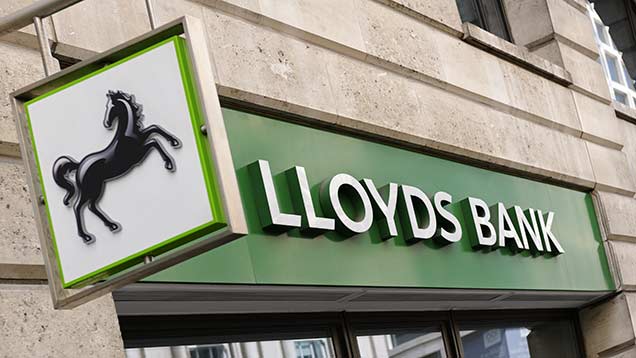£500m loan pot created for farmers facing late BPS payments
 © Simon Belcher/Image Broker/Rex Shutterstock
© Simon Belcher/Image Broker/Rex Shutterstock Lloyds Bank is launching a £500m loan pot for farmers whose Basic Payment Scheme (BPS) support arrives late.
BPS payments are due to arrive in bank accounts in December, but many are worried they will be late following the failed attempt by authorities in Scotland and England to launch online systems and a number of problems implementing the new CAP in Wales and Northern Ireland.
See also: Farmers’ green scheme payouts hit by computer system woes
With many facing very tight cashflows this year, things are looking tough for thousands of farm businesses and with the official payment window open until June, some could be stretched even further.
Commenting on the bank’s loan pot, Andrew Naylor, head of agriculture at Lloyds, said: “It’s not just an overdraft facility.
“That might be the most common option that farmers need to access to help with their short-term cashflow and working capital,” Mr Naylor explained, “but this is about our dedicated managers understanding their farmers’ businesses and offering a tailored package for their circumstances.”
“By establishing this contingency fund we hope to help farmers get access to the finance they need to keep their business moving, whether they are looking to buy livestock, invest in crops or simply manage their cashflow.”
What the loan offers:
- Available to existing farming customers and only if their BPS payments are late.
- Customers will be able to borrow up to the full amount due from the BPS payments or a proportion of this needed to cover working capital requirements until the payment is made
- There will be no arrangement fees, but loans will be offered “on a commercial basis” and interest rates will apply, which the bank said would vary and depend of the individual’s circumstances and needs
- An overdraft is one of the facilities a business could secure as part of the fund.
David Wadsworth, consultant at an Andersons office in North Yorkshire, said before taking out a loan farmers should consider whether a loan would be more or less expensive than using the business overdraft.
He advised farmers to work out what their cashflow need would be if BPS payments were delayed by three to six months, and then what size loan they might need to take as a result – and crucially the cost of servicing the loan.
He said business owners should consider whether the additional cost of a loan was worth it and whether cashflow could be eased through other routes, such as more cost savings.
More than 140,000 farmers are expected to receive BPS payments across the UK.
There is concern that those in Scotland and England in particular will face delays since the authorities pushed the application deadline back a month and had to resort to the old paper-based system.
